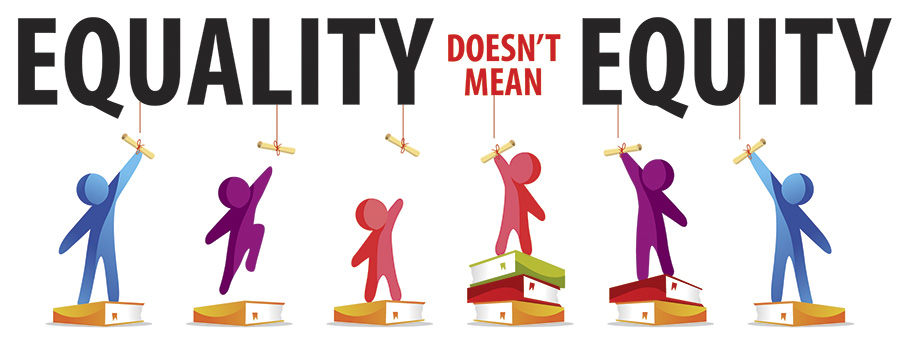Housing Opportunities Promote Education (HOPE) Program funding from the State of California has been discontinued, effective June 30, 2024. For housing resources and information, please visit our Basic Needs Department Webpage.
The Foster Kinship Care Program collaborates with Madera and Fresno Counties to provide pre-service training to foster/adoptive and relative/kinship caregivers.
For more information, contact:
Michael "Jason" Williams
Social Sciences Division
michael.williams@fresnocitycollege.edu
The Rising Scholars Program is funded by the Formerly Incarcerated Students Reentry Program Grant. The program is designed to establish or support formerly incarcerated students enrolled in community college. We focus on the students' successful reentry into the community.
Services Provided:
- Peer Mentor Support
- Activities designed for formerly incarcerated student success
- Academic Counseling
- Tutoring
- Community resource connections
- Fresno City College Resource connections
Connect with a Rising Scholar Counselor Virtual or In Person!
2025 Rising Scholars Symposium - Friday, April 4th, 2025, 9:00am - 4:00pm at Fresno City College
REGISTER for the 2025 Rising Scholars Symposium
Family Advocacy Program
The Family Advocacy Program is here to encourage family participation in all levels of care. To help families navigate the mental health system and find the right door the first time. To help families find the right services for themselves and to link them to community resources. The Family Advocate does not provide therapy services nor make decisions for your family. The Family Advocate will not disclose any confidential information without written consent
Contact:
Kristi Williams
Phone: 559.600.6734
Cell: 559.341.5547
DBHFamilyAdvocacy@fresnocountyca.gov
Fresno County Dept. of Behavioral Health
Fresno County Dept. of Behavioral Health
General Information: 559.600.5956 | 1.800.742.1011
Suicide Prevention Line: 1.800.273.8255
Help with opioid or other substance use disorder: 1.800.654.3937
If you are in crisis, call 911
Multi-Agency Access Program (MAP)
MAP stands for Multi Agency Access Point, funded by Fresno County MAP is available to all Fresno County Residents, without regard to socioeconomic status, ethnicity or other factors. nty Dept. of Behavioral Health, providing linkages at no cost. MAP assists clients with linkages to government resources that will enable them to access: housing, behavioral health, physical health, food linkages, & transportation.
WARM Line: 559.600.9276
559.512.6777
Emergency: 911
Project Rebound – Fresno State
If you have been involved in the Criminal Justice System and feel education is the tool you want to use to change your pathway in life, please contact us. We are a student support services program that assists with those already taking courses at Fresno State as well as those who wish to attend. We can assist you in many ways as you navigate the higher education system.
Project Rebound – Fresno State
Contact(s):
Jennifer Leahy, Program Director
Arnold Trevino, Outreach Coordinator
projectrebound@csufresno.edu
559.278.2313
Reading and Beyond
The mission of Reading and Beyond is to empower children and families to live productive, self-reliant lives. Reading and Beyond offers a two-generation program that works with children and parents together to build education, economic assets, social capital, and health and wellbeing to create economic security that passes from one generation to the next.
Root & Rebound Reentry Advocates
If you have an arrest or conviction history, Root & Rebound Reentry Advocates can help you access lawyers, community advocates, and other resources you might need to navigate employment, housing, family law, parole, probation, and more.
510.279.4662
cgonzalez@rootandrebound.org
dwatts@rootandrebound.org
WestCare Foundation
WestCare Foundation is proud to offer programs and services across the continuum of health and human services. Every doorway into a WestCare program is designed, not only to lead to solutions for the presenting issue, but, also, to be a first step toward identifying what may be other complicating and co-occurring factors impacting the life of a whole human being. WestCare creates a continuum of person-centered and trauma-informed care within each and every one of its programs that is recognized for clinical excellence, coordinated access and collaborative innovation.
Chelsey Ramirez-Hernandez, CES Program Manager
559.470.4801
Chelsey.ramirez@westcare.com
David Bethea
Opening Doors Program Manager
559.538.4044
David.bethea@westcare.com
Workforce Connection – Fresno Regional WDB
Workforce Connection One-Stop Centers is the place that brings everything together! Their diverse menu of services are designed to connect you with job search, assistance with writing your résumé, retraining for a new position and/or referrals to partnering agencies and community resources throughout Fresno County. They are there to help! Participants come from all walks of life, so whether you’ve been out of the workforce for a while, been recently laid off, or at a point in your life where you’re ready to start or change careers.
Contact: Annette Watkins, Outreach/Workshop Facilitator
559.230.4020
Annettew@wfc.co







